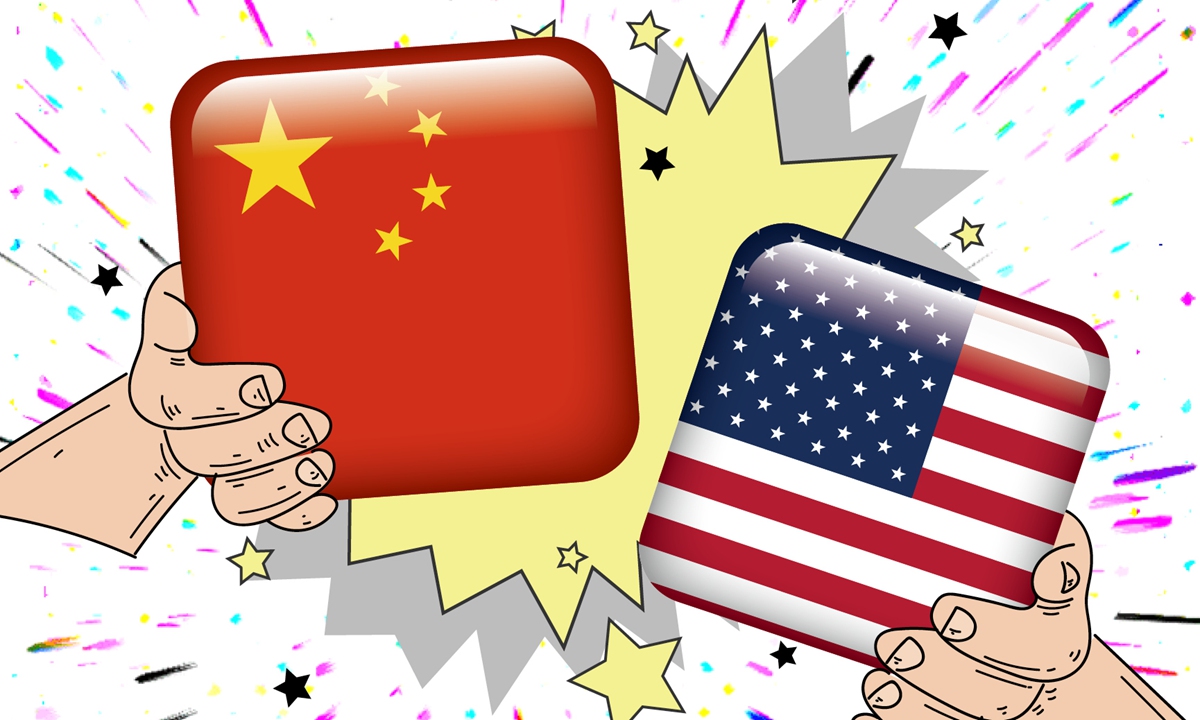US elites want fewer Americans to know the true China
By Mu Lu Source: Global Times Published: 2020/8/20 20:13:40

Photo: GT
Have Western universities become "China's fifth column in the West" as the Foreign Policy magazine alleged? China has never thought about penetrating Western universities, nor will the country do so in the future. But in the eyes of some malicious US elites, the academic highlands they are proud of have compromised "their values" to China - this is also an excuse the elites use to instigate academic decoupling with China. It seems that the US elites have not only lost confidence in the academic sector but also become distrustful of their own culture, and even their system.Foreign Policy on Wednesday published an article with an eye-catching title, "It's Time for Western Universities to Cut Their Ties to China," but the content is unsurprisingly inane. The article is full of worn-out clichés and groundless accusations - even the US State Department's apparent political move to designate the Confucius Institutes US Center as a foreign mission is used as one argument. The article appears to worry about the universities' "autonomy," but the real intention is political.
Many US elites see doing business with China, getting entertained through the China-developed TikTok, and understanding China by the Confucius Institutes as threats to their country. What is wrong with the indomitable US elites, who now shiver with the mere mention of the word China? Where is their confidence? Where has their cultural tolerance gone?
Being inclusive has been one reason for the US' status as the world's No.1. But such an image is collapsing, with US elites becoming increasingly conservative and protectionist, hyping US superiority and reiterating the "America First" doctrine. This mentality has hindered the US from keeping its advantage, while the loss in areas like innovation has further blown the US elites' confidence, making them more paranoid and hysterical.
They need US universities to increase interactions with China. Such exchanges that increase academic diversity can help US universities gain more inspiration and achieve more breakthroughs in research. It is the same for other Western universities.
The explosive growth of people-to-people exchanges between China and the US in recent years is a result of the two countries' demand for reciprocal learning. Cutting ties with China will break off the benign atmosphere for promoting American academic development, and hinder the progress of science, culture, and education in the US.
In an attempt to push forward academic decoupling, the Trump administration suspended the Fulbright Program - an international educational exchange program that was established by the US in 1946. Margaret Lewis, a professor of law at Seton Hall University in New Jersey and a former recipient of the Fulbright Program, described the move as "shooting ourselves in the foot to say we're going to understand the PRC less."
Nonetheless, a misunderstanding of China is probably what some US elites want. Only when there are fewer Americans who know what the real China is like can the US elites better play their tricks to deceive the people, and achieve their political goals by creating new disputes to maintain tensions between China and the US.
Posted in: OBSERVER